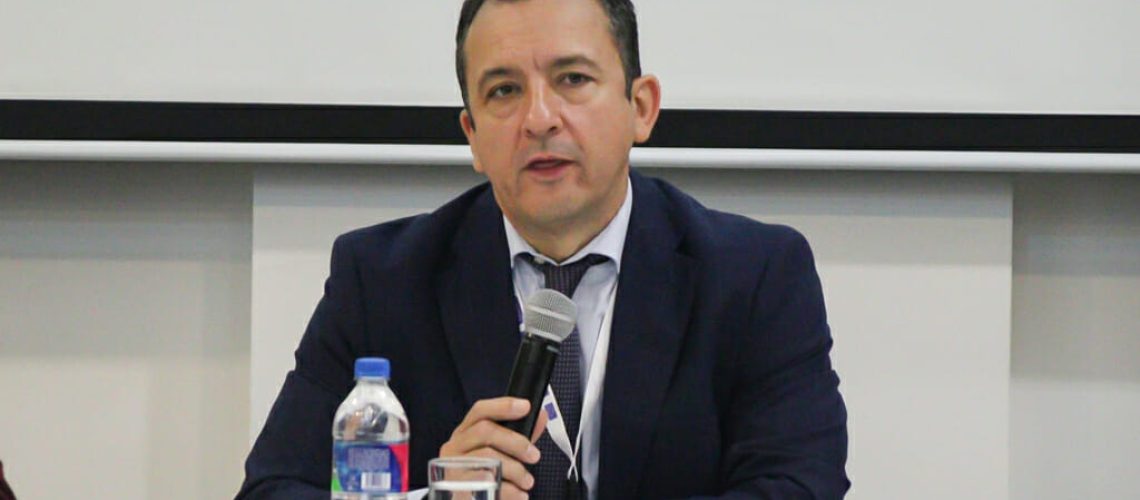Endogenous and transnational violence
The Latin American continent is made up of porous borders, where both the informal economy and intra-regional migration thrive. This is a major challenge for border security, and one that politicians and police forces seem powerless to tackle, given the chronic shortage of funding and skilled labour. “There are major population movements towards other countries or outside the region. According to several international reports, nearly five million Venezuelans have left their country, although the real figure may be higher,” says José Antonio Cambronero.
The Coronavirus pandemic will only have accelerated “the increase in non-traditional migratory flows, in particular Haitian and Cuban migrants, but also irregular migratory movements of citizens from Asia and Africa, as well as from the United States. In 2022, there were around 250,000 irregular entries, almost twice as many as in 2021. 2023 has already surpassed last year’s historic figures, and if this trend continues, this year could end with over 400,000 people crossing the border,” says the head of the Eurofront programme. He continues: “The region is also seeing growing threats relating to these movements of often vulnerable people, such as human trafficking, migrant smuggling and environmental crime. In this respect, we are particularly concerned about the irregular migration route that crosses the Darién Gap between Colombia and Panama, where the threats of human trafficking and environmental crime are particularly acute. The presence of criminal gangs exposes migrants to violence, including sexual abuse.”
Sharing European practices
“[Eurofront] aims to contribute to greater security in the Latin American region by strengthening the institutional capacity and coordination of public border management bodies, by implementing migration management mechanisms that facilitate human mobility, by supporting safe migration, the fight against human trafficking and migrant smuggling, and by introducing advanced elements of integrated border management, including the praxis developed by the European Union in the form of best practices, protocols and lessons learned,” explains the director. This European project is deployed across four strategic borders, involving no fewer than seven countries: Rumichaca (Colombia-Ecuador), the Triple Frontier (Argentina-Brazil-Paraguay), Desaguadero (Bolivia-Peru) and Aguas Blancas – Bermejo (Argentina-Bolivia).
“The work is carried out by European experts who visit the partner countries with the intention of transferring the knowledge and experience they have acquired in border management in the Schengen Area, which I believe is very valuable in the region. The programme is conceived as a pilot action initially implemented at the four borders, with a view to generating a valid model to be transferred and replicated at other relevant border crossings in the region. However, there are no plans to add new border crossings during this initial phase. […] The solutions are planned at regional level, making it possible to harmonise border control and crime-fighting regulations, thus contributing to the positioning of integrated border management in areas of impact and decision-making, as well as to the creation of regional networks enabling the exchange of operational information and the coordination of joint actions in the fight against crimes that have a marked transnational character”, says the Spanish police commissioner.
Bi-regional synergies
Lines of action have already been mapped out for the coming years to improve border security. “An ambitious programme is being developed to build the capacity of border operators, with particular attention to border control instruments, mechanisms and methods, respect for human rights at the border, gender equality, ethics, the fight against corruption, criminal investigation, risk analysis and intelligence. A key element of border management in the region is combating the threats posed by human trafficking and migrant smuggling. To this end, work is being carried out with countries in the region to reinforce strategies to prevent these crimes, provide assistance and investigate them. It is planned to establish a platform between the countries in the region that will serve as a framework for the exchange of training and best practices, with the aim of improving early detection, assistance and protection of victims” explains the Spanish representative.
This will involve supporting the creation of working groups dedicated to these issues at the very heart of regional dialogue bodies such as Mercosur and the Andean Community of Nations (CAN).[1] The other challenge will be to transpose European standards across the continent, drawing on existing regulations on cross-border police cooperation, biometric control and the management of personal identification databases. This sharing of European experience and best practice could pave the way for future bi-regional cooperation programmes.
[1] Editor, Líneas estratégicas EUROFRONT 2022, https://www.programaeurofront.eu/0/novedad/lineas-estrategicas-eurofront-2022 , 7 March 2022.
A second wind?
Following the EU-Celac summit last July, the development of European programmes could benefit from a second wind in diplomatic relations between the two continents. “Coordination with the EU’s other regional programmes is of strategic importance, and adds value to our intervention, enabling us to eliminate duplication of effort and streamline our activities in order to obtain the best possible return,” explains José Antonio Cambronero. He concludes: “Our aim is to continue to combine our efforts and achieve more results on the basis of the thematic synergies in the field of security that we have established, not only with Copolad III and El PAcCTO, but also with other programmes with complementary themes and approaches in the region, such as SEACOP V or the EU’s bilateral programmes to support the forces of law and order in the fight against drug trafficking and organised crime in Peru and Bolivia, all managed by FIIAPP (International and Ibero-American Foundation for Administration and Public Policies), which works to improve public systems by managing international cooperation projects.”
Comments collected by S&D MAGAZINE


